Science_Hightech — operanewsapp.
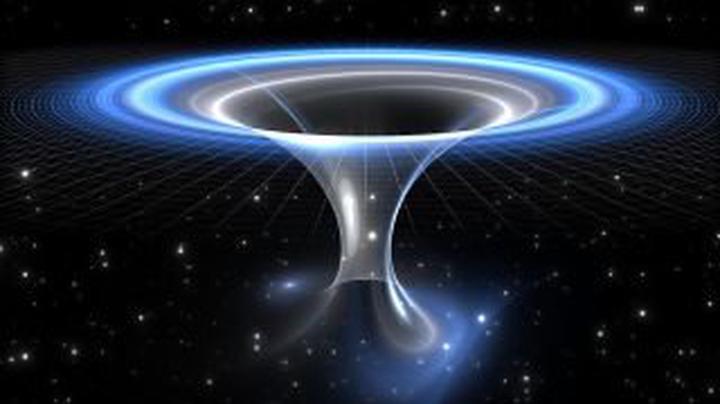

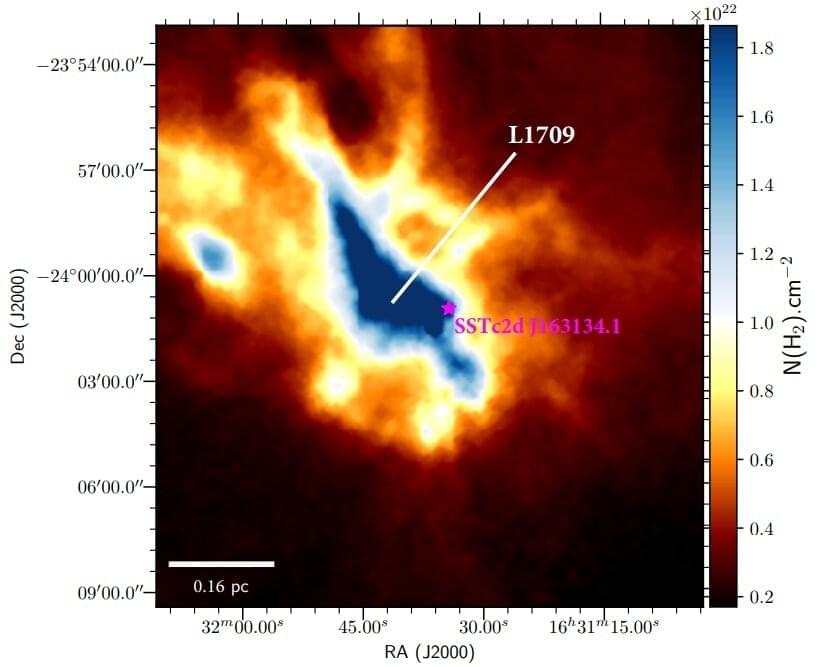
Astronomers report the detection of a new brown dwarf as part of the Ophiuchus Disk Survey Employing ALMA (ODISEA) program. The newfound object, designated SSTc2d J163134.1–24006, appears to be experiencing a quasi-spherical mass loss. The discovery was detailed in a paper published September 2 on the arXiv pre-print repository.
Brown dwarfs are intermediate objects between planets and stars, occupying the mass range between 13 and 80 Jupiter masses (0.012 and 0.076 solar masses). They can burn deuterium but are unable to burn regular hydrogen, which requires a minimum mass of at least 80 Jupiter masses and a core temperature of about 3 million K.
A team of astronomers led by Dary Ruiz-Rodriguez of the National Radio Astronomy Observatory (NRAO) in Charlottesville, Virginia, have investigated SSTc2d J163134.1–24006, initially identified as a faint stellar object, under the ODISEA project, which is dedicated to study the entire population of protoplanetary disks in the Ophiuchus Molecular Cloud. They found that SSTc2d J163134.1–24006 is most likely a brown dwarf with a mass of about 0.05 solar masses, and an elliptical shell of carbon monoxide (CO).
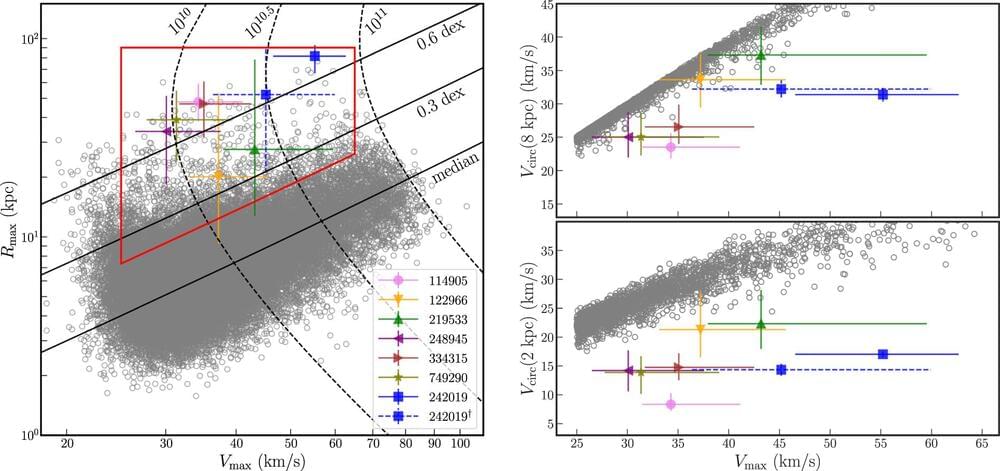
A study co-led by physicists at UC Riverside and UC Irvine has found that dark matter halos of ultra-diffuse galaxies are very odd, raising questions about physicists’ understanding of galaxy formation and the structure of the universe.
Ultra-diffuse galaxies are so called because of their extremely low luminosity. The distribution of baryons—gas and stars—is much more spread out in ultra-diffuse galaxies compared to “normal” galaxies with similar masses.
In the following Q&A, Hai-Bo Yu, an associate professor of physics and astronomy at UCRhis thoughts on the findings he and UCI’s Manoj Kaplinghat, his long-term collaborator, have published in The Astrophysical Journal about newly discovered ultra-diffuse galaxies and their dark matter halos.
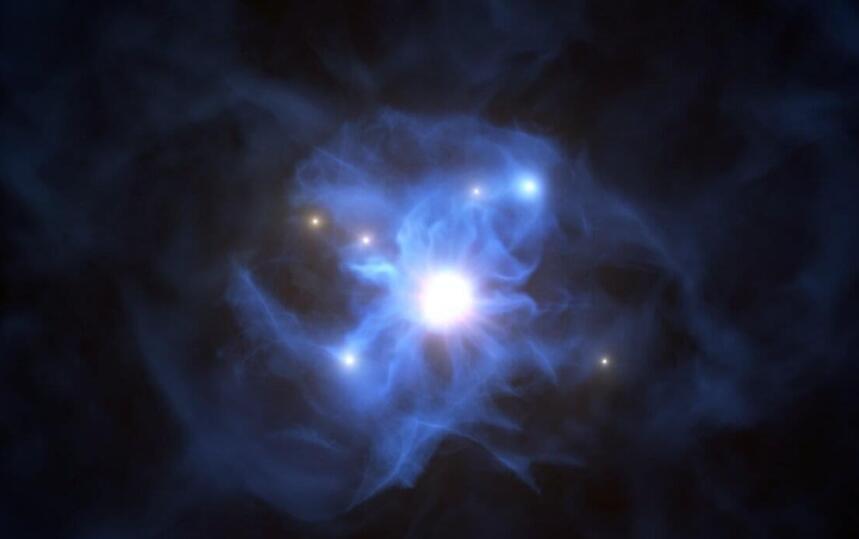
With the help of ESO’s Very Large Telescope (VLT), astronomers have found six galaxies lying around a supermassive black hole when the Universe was less than a billion years old. This is the first time such a close grouping has been seen so soon after the Big Bang and the finding helps us better understand how supermassive black holes, one of which exists at the centre of our Milky Way, formed and grew to their enormous sizes so quickly. It supports the theory that black holes can grow rapidly within large, web-like structures which contain plenty of gas to fuel them.
“This research was mainly driven by the desire to understand some of the most challenging astronomical objects —supermassive black holes in the early Universe. These are extreme systems and to date we have had no good explanation for their existence,” said Marco Mignoli, an astronomer at the National Institute for Astrophysics (INAF) in Bologna, Italy, and lead author of the new research published today in Astronomy & Astrophysics.
The new observations with ESO’s VLT revealed several galaxies surrounding a supermassive black hole, all lying in a cosmic “spider’s web” of gas extending to over 300 times the size of the Milky Way. “The cosmic web filaments are like spider’s web threads,” explains Mignoli. “The galaxies stand and grow where the filaments cross, and streams of gas—available to fuel both the galaxies and the central supermassive black hole—can flow along the filaments.”
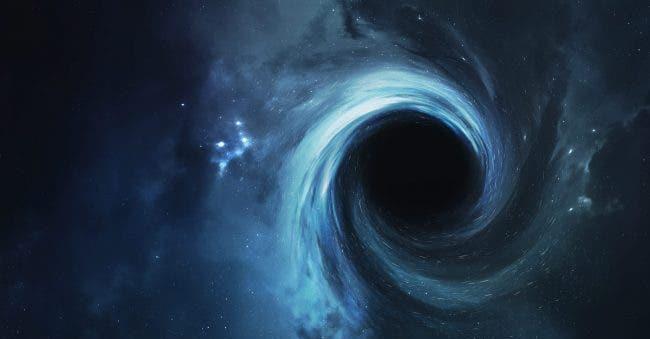
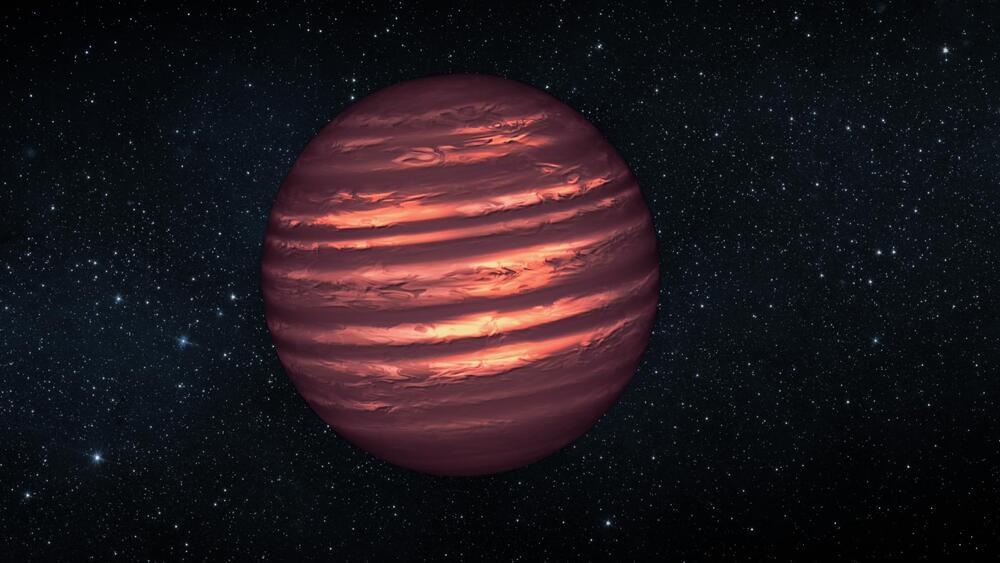
It appears to be experiencing a quasi-spherical mass loss.
Brown dwarfs, which are neither stars nor planets, were first introduced to us 27 years ago. Now it is time to meet a new one because astronomers have discovered a brown dwarf under the Ophiuchus Disk Survey employing ALMA (ODISEA) project.
ODISEA project, which is intended to study the entire population of protoplanetary disks in the Ophiuchus Molecular Cloud, a group of astronomers led by Dary Ruiz-Rodriguez of the National Radio Astronomy Observatory (NRAO) have investigated “SSTc2d J163134.1–24006,” which was initially identified as a faint stellar object.
The report was published by Cornell University on September 2.
NASA
Now it is time to meet a new one because astronomers have discovered a brown dwarf under the Ophiuchus Disk Survey employing ALMA (ODISEA) project.
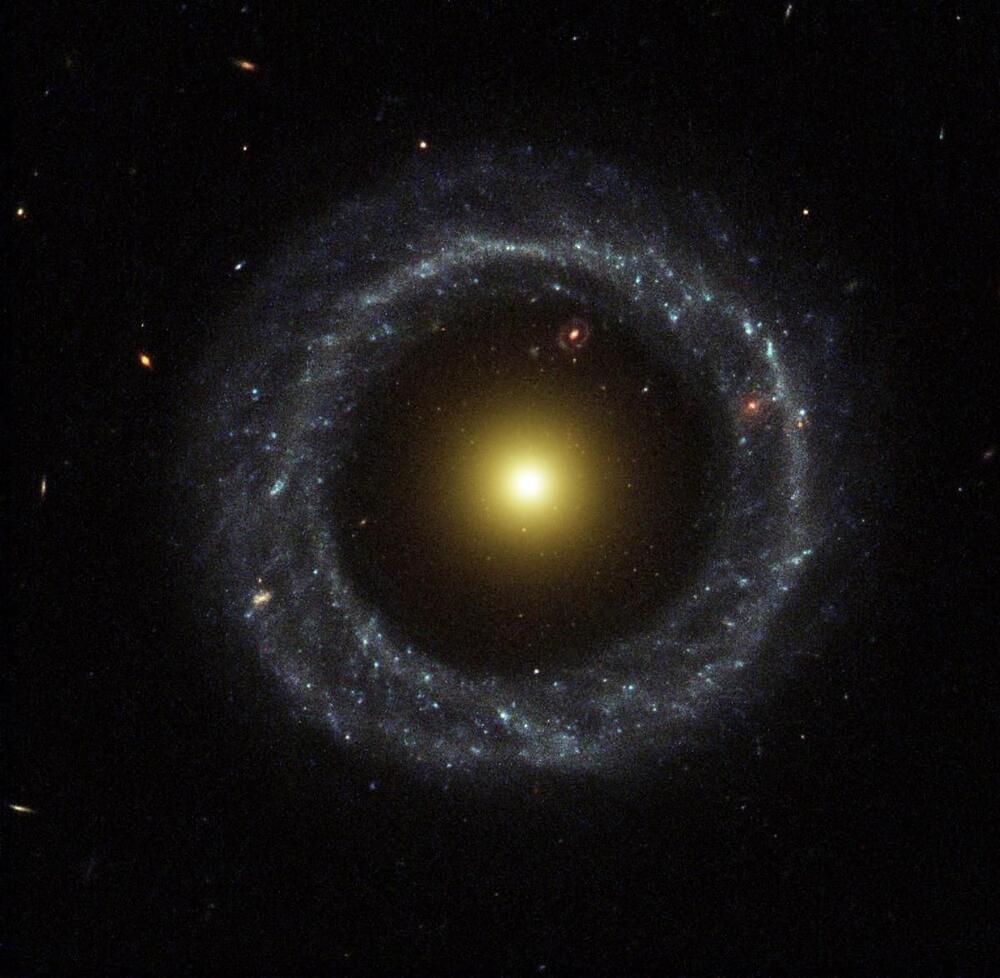
A Royal Astronomical Society press release revealed that during the National Astronomy Meeting (NAM) 2022, currently being hosted at the University of Warwick, scientists will announce the discovery of 40,000 ring galaxies discovered using a “cyborg” approach — a combination of human and machine intelligence.
The work will be presented by Dr. Mike Walmsley of the University of Manchester and the Galaxy Zoo collaboration — a decade-long citizen science project on the Zooniverse platform.
Volunteers for the Galaxy Zoo project look through pictures of galaxies and classify them by shape and features. Studying the morphology of galaxies is an important step in understanding how they interact with their surroundings. In the words of Galaxy Zoo’s “About” section:
Well, not so fast.
Crocker’s paper, published Monday in the journal Nature Astronomy, argues that this “substructure” doesn’t belong to the Fermi bubble at all but instead a satellite galaxy behind the bubble (from our galactic perspective) called the Dwarf Sagittarius Spheroidal Galaxy, or Sagittarius dSph.
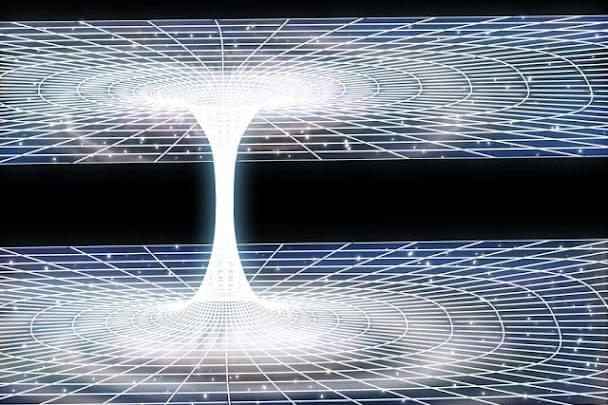
University of Cambridge physicists have developed a theoretical foundation for the existence of wormholes, which are pipelines that connect two dissimilar places in space-time. Time travel and instant communication across great distances may become possible if a piece of data or a physical object could pass through the wormhole.
“But there’s a problem: Einstein’s wormholes are extremely unsteady, and they don’t stay open long enough for something to pass over.”
In 1988, physicists reached the deduction that a type of negative energy called Casimir energy might keep wormholes open.
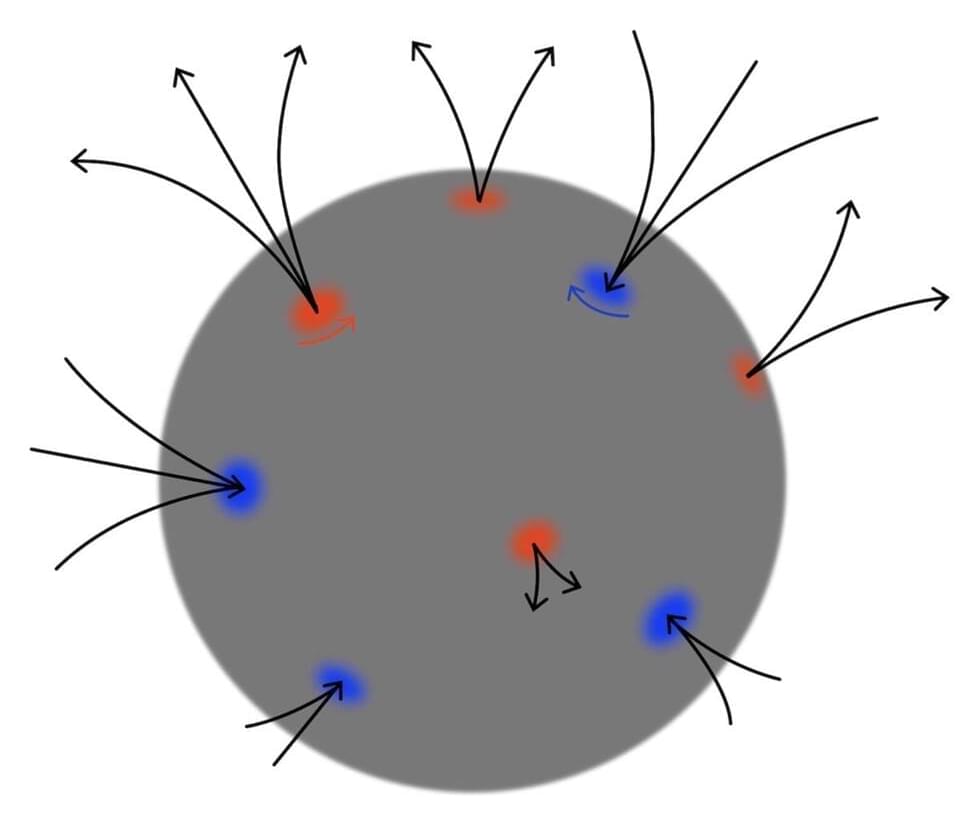
Black holes are astronomical objects with extremely strong gravitational pulls from which not even light can escape. While the idea of bodies that would trap light has been around since the 18th century, the first direct observation of black holes took place in 2015.
Since then, physicists have conducted countless theoretical and experimental studies aimed at better understanding these fascinating cosmological objects. This had led to many discoveries and theories about the unique characteristics, properties, and dynamics of black holes.
Researchers at Ludwig-Maximilians-Universität and Max-Planck-Institut für Physik have recently carried out a theoretical study exploring the possible existence of vortices in black holes. Their paper, published in Physical Review Letters, shows that black holes should theoretically be able to admit vortex structures.